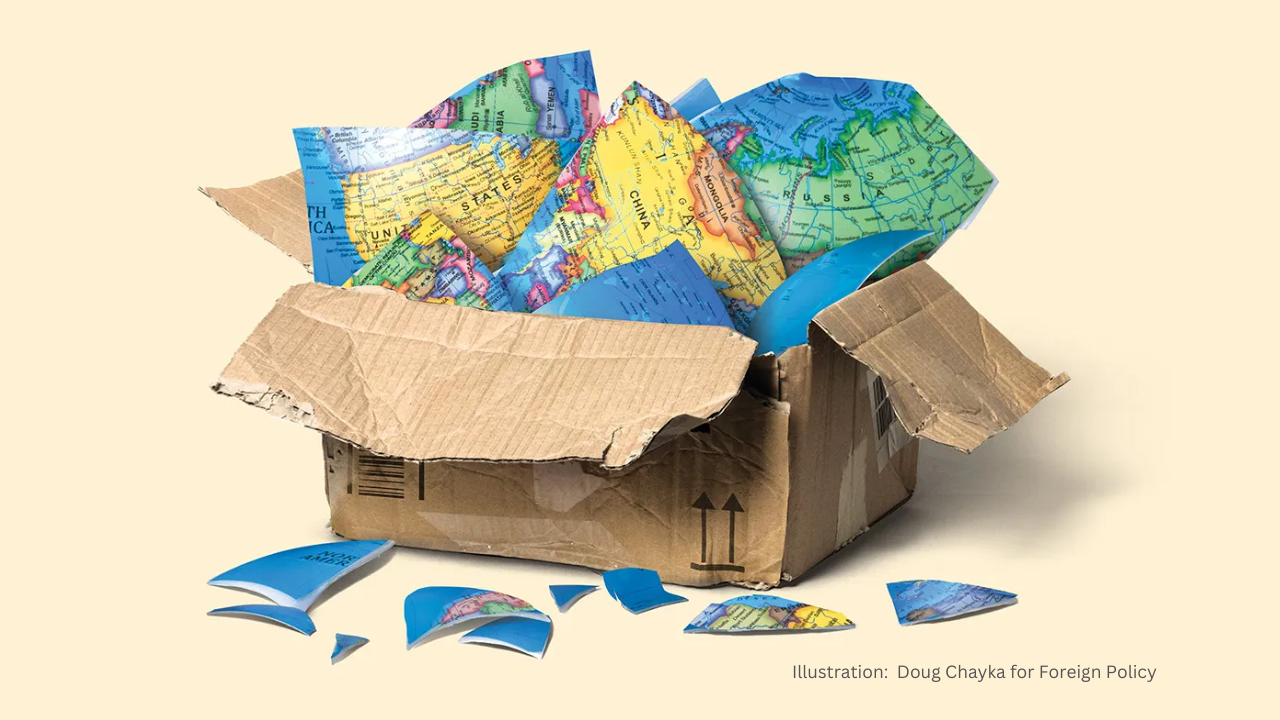The Rise of "Friendshoring": What is the future of globalization?
Sinthia Kamal | 05 May 2025
In an era defined by geopolitical instability, post-pandemic recalibration, new technologies and climate change, the notion of seamless globalization of three decades is losing its appeal. The essence of globalization is changing as countries’ strengthen regional ties and shifting domestic priorities forcing a dramatic reorganization of global supply chains. The modern world has entered friendshoring‒ a term that has emerged as a strategy for countries and corporations to reassess who they trade with, not just based on the cost efficiency but also on political aligned and trust. Unlike offshoring (Which chased cheap labor) or reshoring (which brought production home), friendshoring is a hybrid strategy balancing cost, resilience and geopolitical risks. This has resulted in the relocation of production which is reshaping economic alliances and potentially dividing the world into competing trade blocs. So the critical question emerges as: If the world economy is splitting into trade blocs, what does this mean for future globalization?
Friendshoring can be seen as a formalization of a post-globalization atmosphere where ideological presence has become more valuable than economic efficiency, as it is challenging long decades of economic orthodoxy. Popularized by the U.S. Treasury Secretary Janet Yellen in 2022, the strategy was crystallized as an advocacy for supply chains “among trusted partners to minimize risks.” More clearly, the relocation of the supply chain to allied or ‘friendly’ countries can be considered as a way to reduce dependency on geopolitical rivals‒ conceivably on China.
From long ago, global trade has been operated on the assumption that economic interdependence would restrain political rivalry. This premise also formed the bedrock of post-Cold War globalization. China’s entrance in the World Trade Organization in 2001, the eastern enlargement of the European Union and the vast web of global supply chains were all based on the basis of functionalism, that indisputable economic interest would reduce confrontation.
Friendshoring challenges this hypothesis. It suggests that economic ties can no longer be trusted to keep states away from political confrontation. The U.S.-China trade war, the COVID-19 pandemic and the Russian invasion of Ukraine have all revealed how geopolitics can disrupt global supply chain. This has replaced the old orthodoxy with a new one: trade with those who won’t weaponize interdependency. As a result, countries are seeking to “de-risk” their economy by re-orienting their partnerships toward politically reliable actors. It is the re-politicization of trade.This trend reflects both a practical response to today’s challenges and a possible threat to global economic stability.
This shift has some profound implications, not only for how goods are produced but also how trust is found, constructed and maintained. The economic blocs forming around the U.S., the EU and China have the potential to fragment the global supply system. Instead of one integrated global economy, the world may get introduced with regional economic blocs, each shaped by shared political and security interests. While some may see this as a return to Cold-War isolation. It is necessarily not. Rather, it’s the reality that the global economic order is no longer based on shared liberal framework. The rise of multipolarity with strategic competition defends the argument with the fact that states are now reasserting their sovereignty over trade decisions. Economic policy is now bound with national security, resilience and strategic autonomy.
If friendshoring is pursued aggressively the global economy could get exacerbated while marginalizing developing countries that are left out of the “trusted” circle. For countries who have long depended on export-led growth and global supply chains, the shift raises a pressing question: Who will be seen as a trusted partner and who will be sidelined in this new world order? What’s more, trust in global politics is a fragile currency. Today’s allies can turn in as competitors in future. Supporting trade only based on political alignment has the ability to create new vulnerabilities rather than resolving the old ones.
So, what’s the future of globalization? For now, it’s not dead, it is being refined. The world is experiencing a shift from hyper-globalization to strategic-globalization. Which is being built on a new ground principle, “trust”. Countries will need to navigate a more complex environment, balancing economic opportunity with strategic attention. The challenge is to maintain a diversity of partners as a strategy rather than ideological homogeneity for the goal; economic resilience. If not, the world may split into two deglobalized blocs or more, the very mistake globalization once sought to overcome.
Sinthia Kamal is a third-year undergraduate student of Global Studies and Governance at Independent University Bangladesh.
Disclaimer: Views in this article are author’s own and do not necessarily reflect CGS policy
